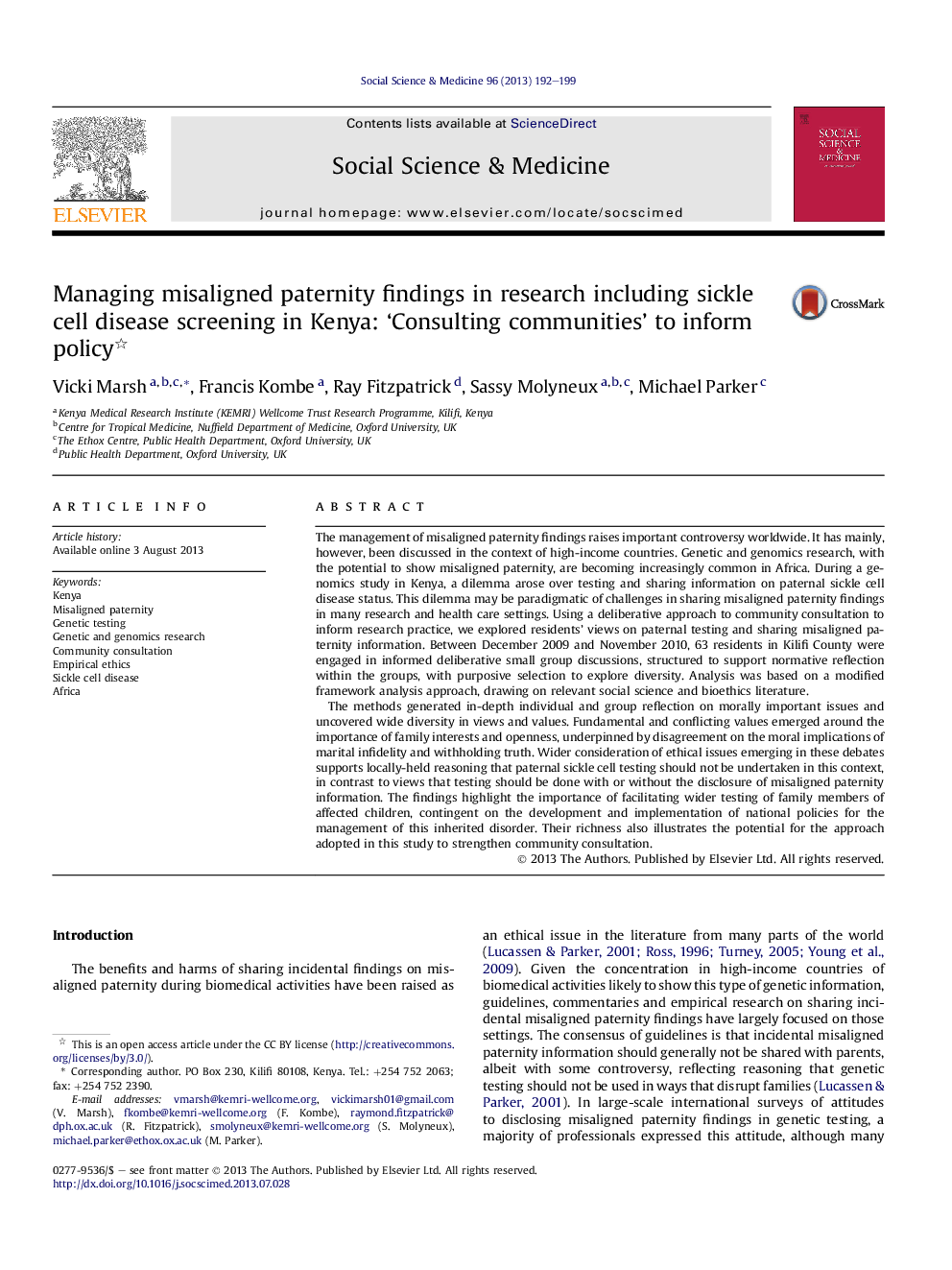| Article ID | Journal | Published Year | Pages | File Type |
|---|---|---|---|---|
| 7336746 | Social Science & Medicine | 2013 | 8 Pages |
Abstract
The methods generated in-depth individual and group reflection on morally important issues and uncovered wide diversity in views and values. Fundamental and conflicting values emerged around the importance of family interests and openness, underpinned by disagreement on the moral implications of marital infidelity and withholding truth. Wider consideration of ethical issues emerging in these debates supports locally-held reasoning that paternal sickle cell testing should not be undertaken in this context, in contrast to views that testing should be done with or without the disclosure of misaligned paternity information. The findings highlight the importance of facilitating wider testing of family members of affected children, contingent on the development and implementation of national policies for the management of this inherited disorder. Their richness also illustrates the potential for the approach adopted in this study to strengthen community consultation.
Related Topics
Health Sciences
Medicine and Dentistry
Public Health and Health Policy
Authors
Vicki Marsh, Francis Kombe, Ray Fitzpatrick, Sassy Molyneux, Michael Parker,
